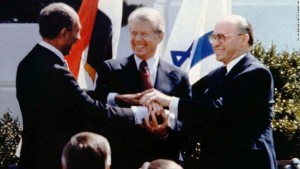By JOHN KANELIS / johnkanelis_92@hotmail.com
Let’s talk briefly about a peace agreement between Israel and two neighboring Arab nations: the United Arab Emirates and Bahrain.
Donald Trump is hailing the agreements his administration brokered as a sea change event. Israel will open embassies in the UAE and Bahrain for the first time in the history of Israel’s existence.
Hey, it is a big deal.
However, let’s put this in a bit of context. Israel has not been at war with either country. It has gone to war with others in the region, to be sure. Jordan, Egypt and Syria come to mind immediately.
To be clear, Israel also has peace agreements with Jordan and Egypt. They were brokered years ago by preceding presidential administrations. Indeed, the Israel-Egypt peace agreement ended up costing Egyptian President Anwar Sadat his life when he was murdered by Islamic extremists while watching a military parade.
I had the privilege of spending more than a month in Israel in May-June 2009. I had a chance during that time to speak with many learned Israelis. We spoke of tensions in the region between Israel and Lebanon, Israel and Syria, Israel and the Palestinians, Israel and the Gaza Strip. No one I talked to 11 years ago ever mentioned the UAE or Bahrain as nations that Israel simply needed to forge a peace agreement.
I do not intend to denigrate the peace agreements forged between Israel and its two Arab neighboring states.
I do intend, though, to add a bit of context to the settlements. They’re important, but I don’t believe in the grand scheme they matter to nearly the extent that the Trump administration suggests.
Now, if the Trump team hammers out a peace treaty with, say, Syria and Iran … well, then we’ll have reason to celebrate.


